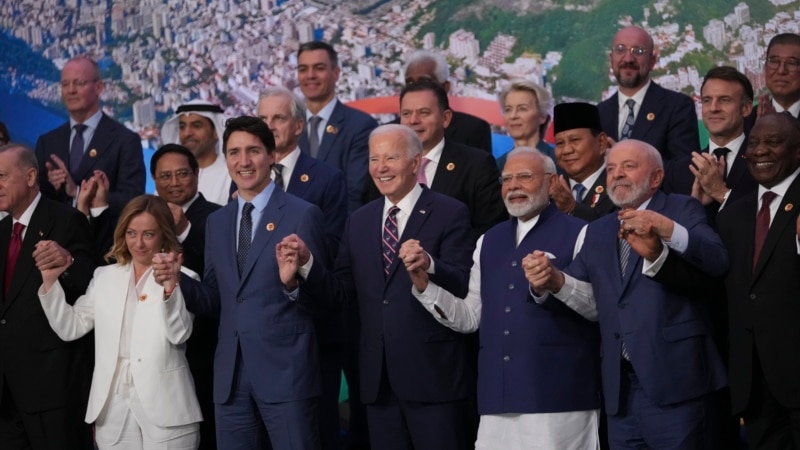rio de janeiro — Leaders of the world's largest economies ended their two-day G20 summit in Rio de Janeiro with a statement supporting the priorities of the Global South: climate change, poverty reduction and taxing billionaires.
The Global South is generally considered to be developing countries, as well as Russia and China.
Brazilian President Luiz Inacio Lula da Silva, host of the G20 summit, focused the talks around three key pillars: social inclusion and tackling hunger and poverty; energy, transitions and climate action, and reforming global governance.
Globalization has failed, Lula said.
"In the midst of growing turbulence, the international community seems resigned to sailing aimlessly through hegemonic disputes," he said. "We remain adrift as if swept along by a torrent pushing us towards tragedy."
In their joint statement, the group underscored the need to slow global warming and reduce poverty. They agreed to work together to "ensure that ultra-high-net-worth individuals are effectively taxed."
The communique states that progressive taxation "is one of the key tools to reduce domestic inequalities … promote strong, sustainable balanced and inclusive growth and facilitate the achievement of the UN Sustainable Development Goals [SDGs]."
Call for expansion
The G20 again called to expand the United Nations Security Council beyond its five current permanent members.
The outcomes are a reasonable reflection of Biden administration priorities, said Matthew Goodman, director of the Greenberg Center for Geoeconomic Studies at the Council on Foreign Relations.
"But it isn't clear how much of this will carry forward into a second Trump administration," he said.
President-elect Donald Trump will be inaugurated in January. A senior Biden administration official said they're working to ensure the durability of U.S. commitments with a "multiprong, multitier approach," including through civil society, so "there is some real staying power."
At the summit, President Joe Biden continued his "legacy of leadership," the White House said, including rallying leaders "to invest in their futures, accelerate the global clean energy transition, tackle global health threats, and champion an inclusive digital transformation" while building on the U.S.'s "longstanding leadership on food security."
Global conflicts
The group called for a cease-fire in Gaza and Lebanon but did not mention Israel's right to defend itself, a line that Biden pushes for in various global forums.
"I ask everyone here to increase the pressure on Hamas, which is currently refusing this deal," Biden said.
As in last year's summit, G20 leaders highlighted the human suffering and economic impact of the war in Ukraine, without any condemnation of Russia. The war is escalating as Ukraine begins using long-range weapons provided by the U.S. and Britain to strike inside Russian territory.
Kyiv accuses the G20 of failing to act.
"Today, G20 countries are sitting in Brazil. Did they say something? Nothing strong," Ukrainian President Volodymyr Zelenskyy said on Tuesday. "G20 countries don't have any strong strategy? So, our strategy is to be strong."
There is "less international consensus now on Russia's culpability than there was before," said Kristine Berzina, managing director of GMF Geostrategy North.
"Countries skeptical of a rules-based or rights-based order are flexing their muscles at the G20, much as they brazenly sidled up to Russia at the BRICS summit in Kazan weeks ago," she said.
Support for Ukraine is on the minds of leaders ahead of the incoming U.S. administration under Trump, who has criticized sending aid to help Kyiv.
Biden and Lula met on the summit's sidelines, underscoring the urgent need to address the climate crisis, another area of uncertainty among leaders here.
Trump has repeatedly called climate change a hoax and withdrew the U.S. from the Paris Climate Accords in 2017 during his first term.
Brazil ended the summit by passing the baton to South Africa, the next G20 president.


